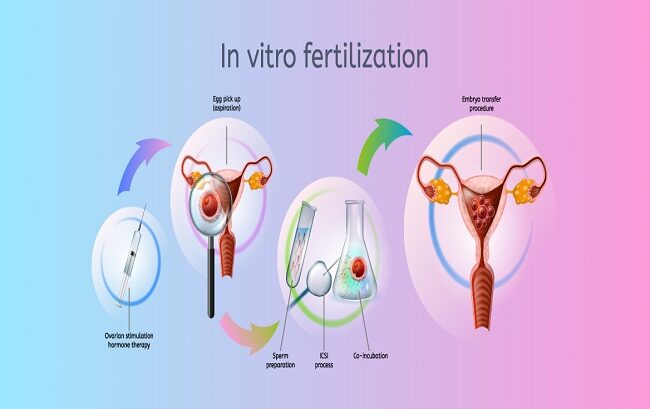Who can have it
Who can do IVF
In vitro fertilization (IVF) is a remedy for infertility or genetic issues. If IVF is carried out to treat infertility, you and your partner might be able to strive less-invasive remedy options before making an attempt, IVF, together with fertility medicine increase production of eggs or intrauterine insemination — a process through which sperm are positioned straight within the uterus close to the time of ovulation.
Typically, IVF is offered as a major remedy for infertility in women over age 40. IVF can be done if you have certain health conditions. For instance, IVF could also be a option in the event you or your companion has:
- Fallopian tube harm or blockage. Fallopian tube harm or blockage makes it tough for an egg to be fertilized or for an embryo to journey to the uterus.
- Ovulation disorders. If ovulation is infrequent or absent, fewer eggs are available for fertilization.
- Endometriosis. Endometriosis occurs when tissue just like the liner of the uterus implants and grows outside of the uterus — typically affecting the function of the ovaries, uterus and fallopian tubes.
- Uterine fibroids. Fibroids are benign tumors in the uterus. They’re frequent in women in their 30s and 40s. Fibroids can interfere with implantation of the fertilized egg.
- Previous tubal sterilization or removal. Tubal ligation is a kind of sterilization through which the fallopian tubes are reduce or blocked to permanently prevent pregnancy. In the event you want to conceive after tubal ligation, IVF could also be an alternative to tubal ligation reversal surgical procedure.
- Impaired sperm production or function. Below-average sperm concentration, weak movement of sperm (poor mobility), or abnormalities in sperm size and shape can make it difficult for sperm to fertilize an egg. If semen abnormalities are discovered, a visit to an infertility specialist might be needed to see if there are correctable problems or underlying health considerations.
- Unexplained infertility. Unexplained infertility means no explanation for infertility has been discovered despite analysis for common causes.
- A genetic dysfunction. If you or your partner is prone to passing on a genetic dysfunction to your child, you may be a candidates for preimplantation genetic testing — a procedure that entails IVF. After the eggs are harvested and fertilized, they’re screened for certain genetic problems, although not all genetic issues might be found. Embryos that don’t include identified problems can be transferred to the uterus.
- Fertility preservation for cancer or different health situations. In the event you’re about to start cancer treatment — such as radiation or chemotherapy — that could harm your fertility, IVF for fertility preservation may be an option. Women can have eggs harvested from their ovaries and frozen in an unfertilized state for later use. Or the eggs can be fertilized and frozen as embryos for future use.Women who don’t have a functional uterus or for whom pregnancy poses a serious health risk might choose IVF using another person to carry the pregnancy (gestational carrier). In this case, the woman’s eggs are fertilized with sperm, but the ensuing embryos are positioned within the gestational carrier’s uterus.
Emergency Cases
Please feel welcome to contact our friendly customer care staff with any Fertility or medical enquiry today:

